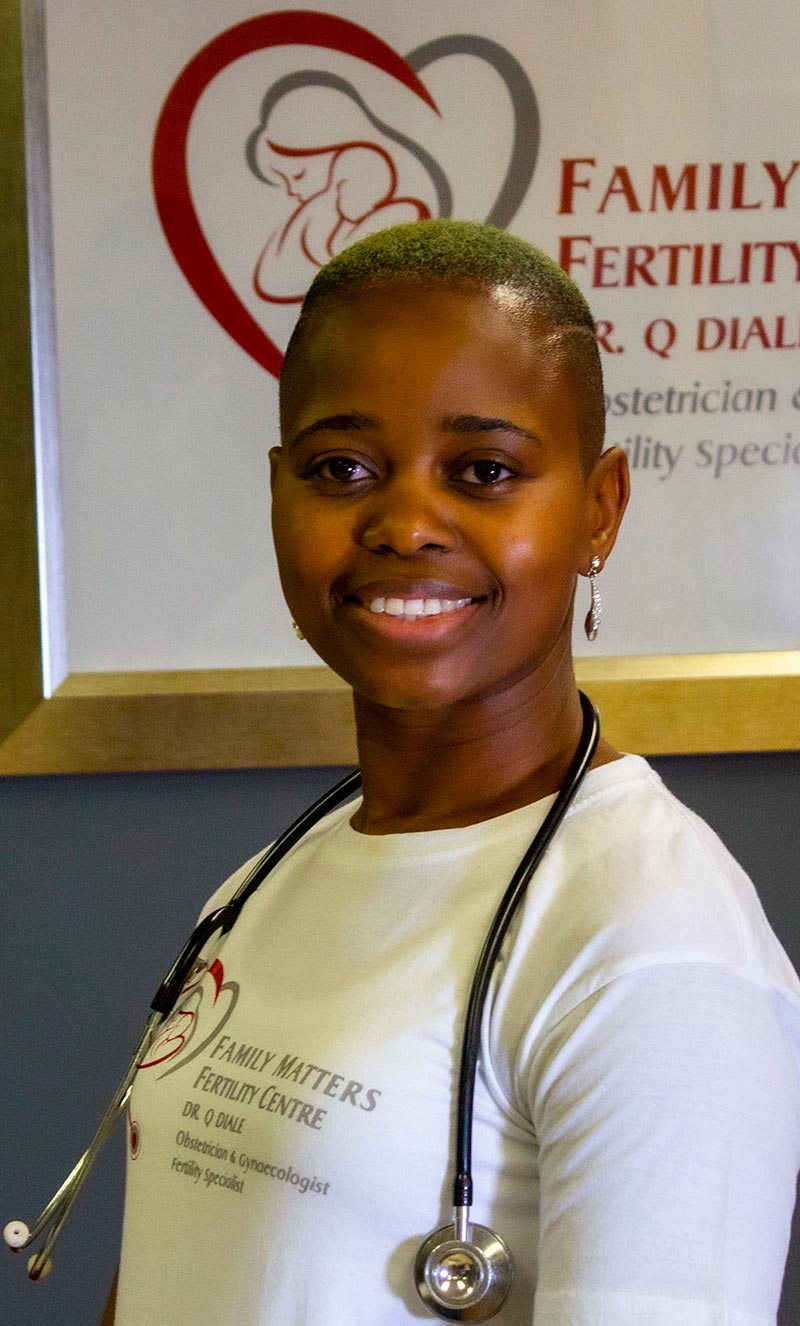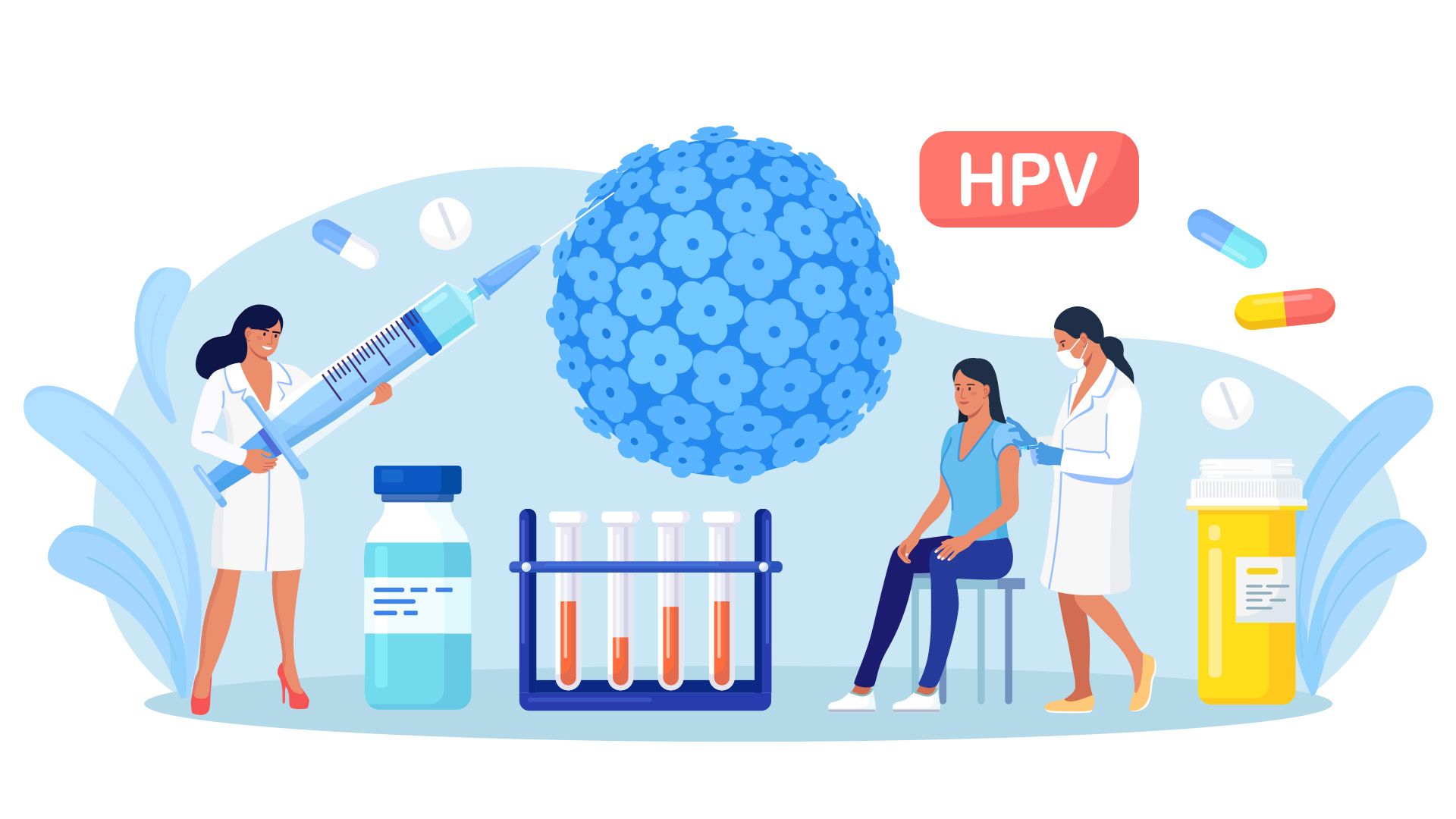Newly launched Pretoria centre holistically addresses the problem of infertility
Drickus Maartens • February 18, 2020
Gynaecologist, obstetrician and fertility specialist, Dr Qinisile Diale, at the newly launched Family Matters Fertility Centre based at Netcare Unitas Hospital in Centurion, Pretoria, which offers a comprehensive range of fertility services.
Couples should seek assistance for fertility problems together, says fertility specialist
Infertility not only represents a major healthcare burden in South Africa, but often causes conflict between couples and may even result in separation and divorce. Given that most couples experiencing fertility problems can nowadays be assisted to conceive with the necessary medical support, this is most unfortunate.
This is the view of gynaecologist, obstetrician and fertility specialist, Dr Qinisile Diale, who was speaking at the recent launch of the new state-of-the-art Family Matters Fertility Centre based at Netcare Unitas Hospital
in Centurion, Pretoria, which offers a comprehensive range of fertility services.
“While it is often mistakenly believed that the female partner is the one who is infertile, and she may even be stigmatised, particularly here in South Africa, it is not commonly known that infertility very often stems from the male partner. In fact, some 30 to 50% of infertility problems are related to men, with 30% identified as being solely a male problem and the other 20% a difficulty that is specific to the two partners,” explains Dr Diale, who has been the driving force behind the new fertility centre.
“This is not to cast blame for infertility on one or either of the sexes but simply to highlight the fact that when partners play a ‘blame game’, it does not provide solutions to a problem that could well be addressed with the assistance of specialists at a dedicated fertility centre such as the Family Matters Fertility Centre, which offers a wide range of fertility services. My message to couples is not give up hope of conceiving and to seek solutions for their problem together,” emphasises Dr Diale.
“More than 80% of the overall population can fall pregnant within a year of trying and 90% within two years. So couples who are trying to but don’t conceive within that time, may well have a fertility challenge of one kind or another and would be well advised to address it with their doctor, who could refer them to a fertility specialist. The recommendation is to seek medical consultation as soon as possible after 12 months of struggling to conceive after regular intercourse without usage of any form of contraception.
“There are a vast number of reasons why a couple may be struggling to conceive but nowadays we can find a solution for most causes of infertility.”
Dr Diale, says fertility therapies can be prohibitively costly but that the Family Matters Fertility Centre will aim to make cutting-edge private fertility services as accessible and affordable as possible, in order to help as many as possible struggling couples from the Tshwane region to have a baby.
Netcare Unitas Hospital general manager, Eugene Ferreira says Dr Diale brings a rare combination of expertise and skills to the fertility centre, as she is not only a qualified gynaecologist and obstetrician but has also completed sub-specialist training in infertility.
“With her tremendous passion for helping couples to conceive, Dr Diale who hails from Durban, was the ideal person to drive the establishment of the Family Matters Fertility Centre at our hospital. We consider ourselves to be extremely fortunate to partner with a specialist of her stature to bring this much needed service to couples in need,” said Ferreira.
Ferreira says that in addition to running the fertility centre, Dr Diale will also be continuing practice in gynaecology and her obstetrics, which will complement the centre’s services. Her skills in, for example, minimally invasive keyhole surgery enables her to provide a comprehensive service, including the treatment of conditions such as uterine fibroids and endometrioses in women which can also impact fertility.
Range of fertility treatments offered
The Family Matters Fertility Centre at Netcare Unitas Hospital offers a range of the latest investigations and treatment options to address fertility challenges in both sexes. These include in-vitro fertilisation (IVF), which involves extracting eggs, obtaining a sperm sample, and then fertilising them in a laboratory dish before transferring them to the uterus; intracytoplasmic sperm injection (ICSI), intrauterine insemination (IUI) with a donor or partner's sample, comprehensive semen analysis, surrogacy, egg donation, semen analysis and others.
“While the use of IVF may increase the chances of multiple pregnancy, which may be associated with an increased risk of lower birth weights and premature delivery, it is an important option for many couples who are struggling to conceive, particularly as it can assist in addressing a range of fertility problems in both men and women,” says Dr Diale.
“Couples who are struggling to start a family can take comfort in the knowledge that reproductive medicine has advanced rapidly in recent years and that dedicated specialist fertility centres such as this are able to significantly improve the chances of becoming pregnant and giving birth to a healthy baby,” she concludes.
Risk factors for infertility
Gynaecologist, obstetrician and fertility specialist, Dr Qinisile Diale says that the risk factors which could contribute to a couple’s infertility include:
- Age – a woman's fertility declines with age, especially from her mid-30s. This is due to the number and quality of her eggs declining and to health problems that may interfere with fertility. In addition, the sperm count of older men is often lower, reducing the fertility and the chances of conception.
- Being overweight – If an individual is overweight and has a sedentary lifestyle with little exercise, this may increase the risk of infertility. In addition, a man's sperm count may be affected if he is overweight.
- Being underweight – Women who have eating disorders, such as anorexia or bulimia, are at risk of fertility problems, as are women who follow a very low calorie or restrictive diet.
- Tobacco use – If either partner is a smoker, a couple’s chances of falling pregnant are reduced. Miscarriages are more frequent in couples who smoke. Smoking can increase the risk of erectile dysfunction and reduce sperm count in men.
- Alcohol use – drinking alcohol increases the risk of birth defects in babies, and may also make it more difficult to become pregnant. For men, heavy alcohol use can cause a decrease in sperm count and mobility.
- Underlying health conditions such as large uterine fibroids can affect a woman’s chance of falling pregnant.
- Medication – the side effects of some medication can affect one’s fertility. This is why it is important for both partners to mention any prescription medication they are taking, including herbal medicines, to their doctor so that alternative treatment options can be discussed.
More on Dr Qinisile Diale
Dr Qinisile Diale, who grew up in Durban, obtained her bachelors degree in medicine and surgery (MBChB) at the University of KwaZulu-Natal in 2006. She served her internship at Witbank Hospital, rotating within various departments but completed her year of community service solely in obstetrics and gynaecology. She obtained her Postgraduate Diploma in Obstetrics and Gynaecology from the Colleges of Medicine South Africa in 2009.
Dr Diale went on to study business obtaining a Postgraduate Diploma in Business Administration through the Gordon Institute of Business Science (GIBS, University of Pretoria). She worked in Pretoria West Hospital managing the HIV clinic there and also provided antenatal care. She trained to become an obstetrician and gynaecologist through the University of Pretoria, obtaining her specialist qualification in 2015. Dr Diale obtained her Certificate in Reproductive Medicine and Endocrinology through the Colleges of Medicine South Africa, as well as her Masters in Philosophy (Reproductive Medicine) from the University of Pretoria in 2019.
To find out more about the services offered through Netcare hospitals and other of the Group’s facilities, please contact Netcare’s customer service centre either by email at customer.service@netcare.co.za or phone 0860 NETCARE (0860 638 2273). Note that the centre operates Mondays to Fridays from 08:00 to 16:00.













